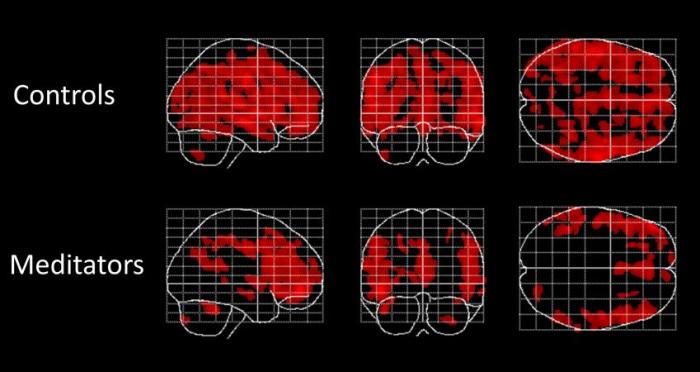The brain -- like the rest of the body -- deteriorates as we age. But in a study that looked at 100 people -- 50 with at least four years of meditation experience and 50 non-meditators -- they found the meditators had more gray matter throughout their brains.
 | ||
| The red areas show brain regions affected by gray matter loss; the
researchers found people who meditated had better preservation of gray
matter. Image credit: Dr. Eileen Luders |
Read more here